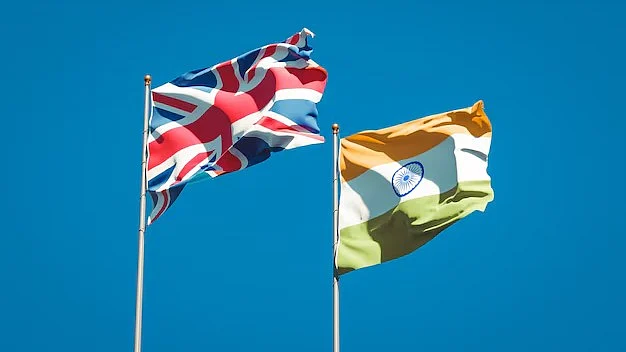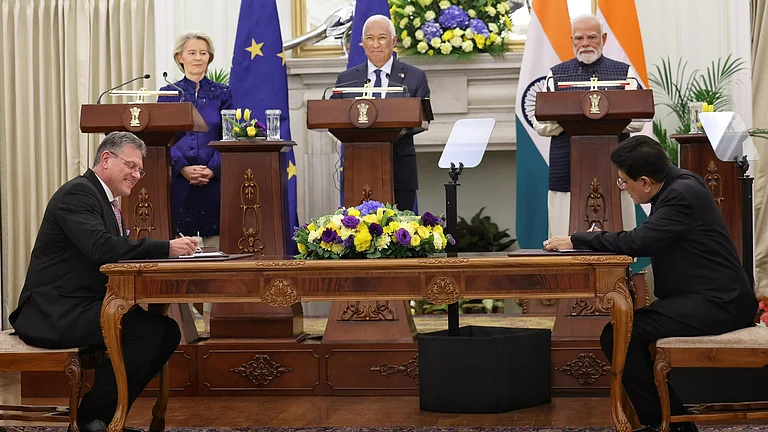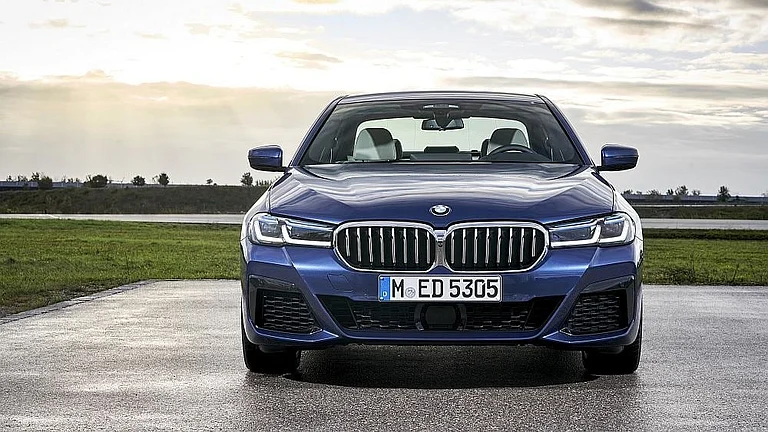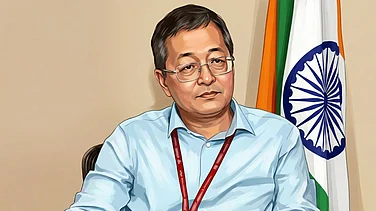A new UK-India Vision-2035 roadmap will be unveiled by Prime Minister Keir Starmer and his Indian counterpart Narendra Modi on Thursday to set "clear goals and milestones" across a range of areas such as defence, technology and energy, British Foreign Secretary David Lammy said.
In an interview to PTI, Lammy said the UK-India Free Trade Agreement (FTA) will naturally be a central focus of the Modi-Starmer talks, and described the deal as a testament to the strength of the partnership between the two nations.
The landmark FTA would significantly improve market access and boost bilateral trade by around USD 34 billion annually, the UK said hours before the deal is signed.
Lammy said the UK-India Vision-2035 will build on the FTA to unlock new opportunities that strengthen defence cooperation and drive innovation between both economies.
The UK is "thrilled" that Prime Minister Modi is visiting to sign the FTA, the most "significant" bilateral trade deal for Britain since leaving the European Union (EU) and the "most comprehensive" agreement India has ever signed, he said.
It's projected to boost bilateral trade by 25.5 billion pounds, increase UK GDP by 4.8 billion pounds, and raise wages by 2.2 billion pounds annually in the long term.
But the visit will go much further than trade. This is about the revitalised partnership between the UK and India.
"UK-India Vision 2035 is an ambitious, future-focused agreement between our leaders to deliver growth, prosperity, and security for people in both countries," he said.
Expanding on the new pact, the Foreign Secretary said it sets clear goals and milestones across defence and security, technology and innovation, climate and clean energy, and education.
"This week we are excited to be agreeing the UK-India Vision 2035, a new agreement that sets ambitious goals for both the UK and India to achieve and marks a step-change in our relationship for the decade ahead," the minister said.
"Building on the trade deal, together, this new work plan will see us unlock new opportunities for bilateral trade and investment to thrive, strengthen our defence cooperation, and work together to drive innovation and shape the technologies of tomorrow. We will also accelerate our joint efforts to tackle climate change along with nurturing the next generation of global talent through our education and skills partnership," he said.
Lammy highlighted that UK-India Vision 2035 introduces new areas of cooperation such as advanced technologies, critical minerals, and green finance and establishes more robust mechanisms for delivery in areas where both countries already work together.
"It will ensure our partnership remains not only relevant and transformative but focused on the challenges of the future. And we'll review this vision annually, ensuring the partnership remains dynamic, aligned, and responsive to rapid global change," he said.
On the foreign policy front, the minister described India as a "pivotal partner" in the Indo-Pacific and the Indian Ocean Region, aligned in the UK's shared commitment to a free, open, and secure region.
"India is the emerging superpower of the 21st century, the largest country in the world with 1.4 billion people and the fastest growing major economy in the world. Through Vision 2035, and the trade deal the Prime Ministers will sign today, the UK is in the best position to partner with India over the next decade," stressed Lammy.
"This includes through increased defence cooperation, strengthening our ability to tackle shared threats like terrorism and cybercrime, whilst promoting peace and security in the Indo-Pacific and beyond," he said.
Asked about the development partnership between India and the UK, which transformed in 2015 from a direct aid funding approach to an investment-led one, but continues to be misrepresented in sections of the UK's right-wing press.
"We haven't provided direct funding to the Indian government since 2015. Instead, we invest in projects that support India's climate goals and sustainable development, which have also delivered financial returns for the UK," said Lammy.
"India's development matters globally. As the world's most populous country, its choices on climate and growth will shape global outcomes. Supporting India's green transition helps protect the world's most vulnerable, advances the Sustainable Development Goals (SDGs), and contributes to UK priorities like economic growth, trade, and national security," he said.
Modi is being hosted by Starmer for wide-ranging talks at his Chequers countryside retreat in Buckinghamshire, south-east England, on Thursday when both leaders are expected to oversee the signing of the FTA that is aimed at doubling bilateral trade to around USD 120 billion by 2030.
































